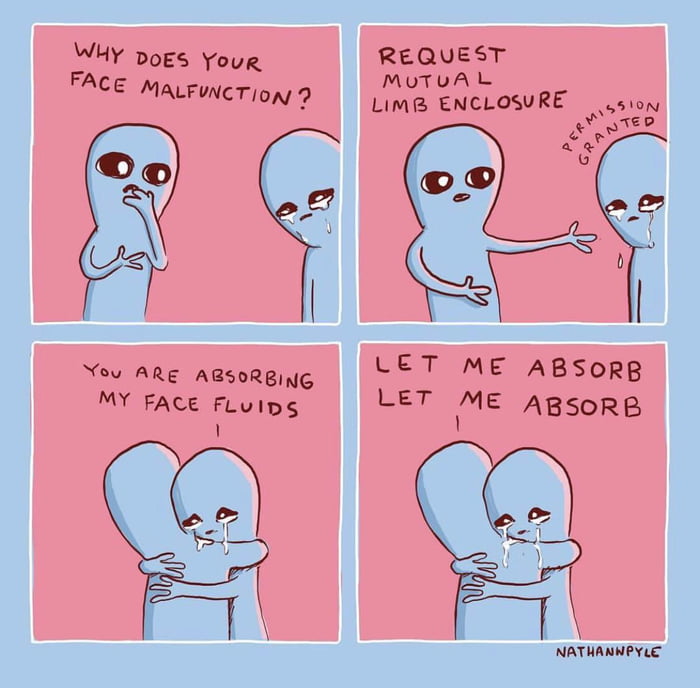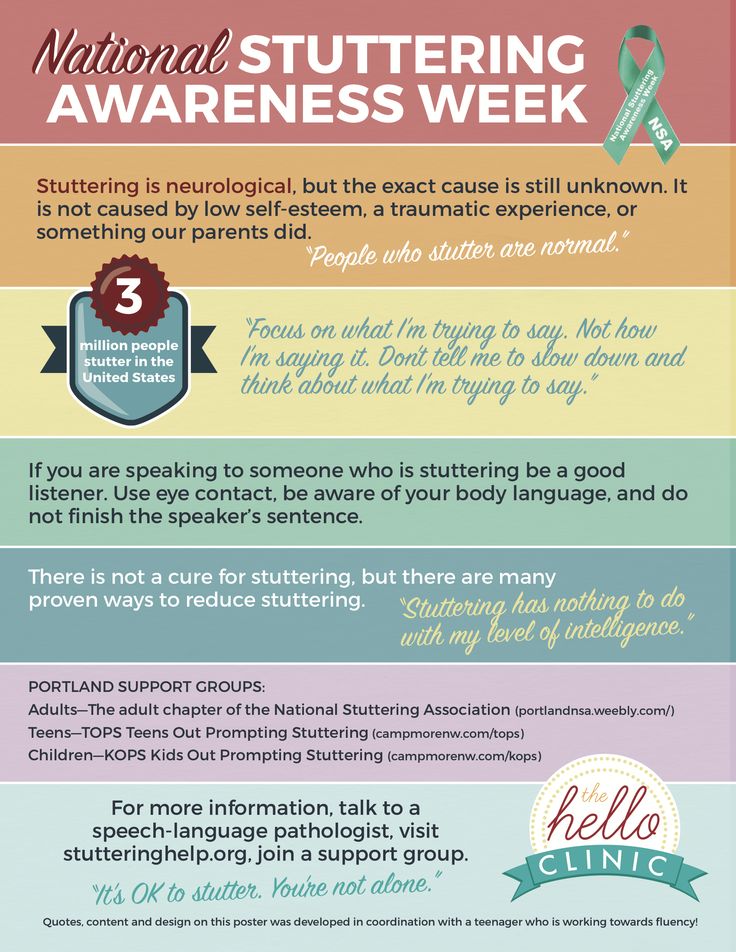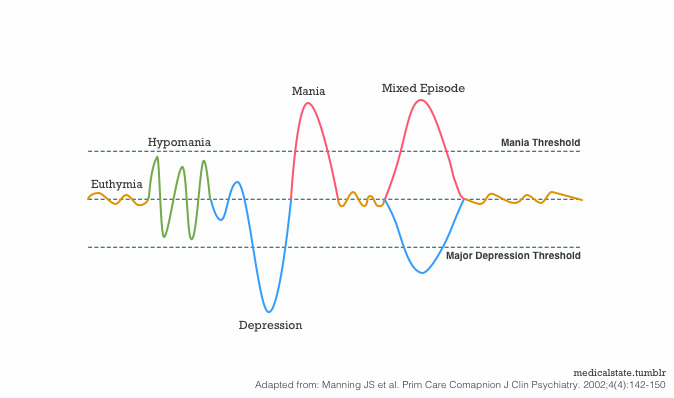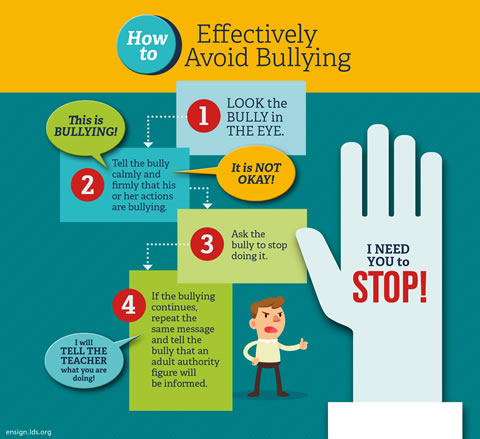Why do i have a stutter
Causes of Stuttering | Why Do People Stutter?
No one speaks perfectly all the time—we all experience disruptions in our speech. For people who stutter, these disruptions, or disfluencies, are more severe and experienced more consistently. For some, stuttering goes away in childhood, for others, it persists throughout adulthood. Why is this?
Researchers currently believe that stuttering is caused by a combination of factors, including genetics, language development, environment, as well as brain structure and function[1]. Working together, these factors can influence the speech of a person who stutters.
Stuttering:
Explained
:: Causes ::
Treatment
Myths
Facts
Support
Stuttering and Language Development
Stuttering most often begins between the ages of two and eight, when children’s language abilities are rapidly expanding. Many children who stutter may know exactly what they want to say, but their motor pathways aren’t quite ready to get the words out.
As children produce longer and more complex sentences, their brain experiences higher demand. This increased demand can affect the motor control necessary to produce speech. When motor pathways can’t keep up with language signals, stuttering can occur.
While the rapid language development occurring in young children makes them more susceptible to disfluencies, all children develop differently. Some children who stutter may have co-existing disorders such as speech and language delays, ADHD, and learning disabilities. For developing children, a genetic disposition to stuttering combined with environmental factors may cause their disfluencies to increase over time and persist into adulthood.
Brain Activity in People Who Stutter
While no one factor determines stuttering, the predominate theory suggests that a combination of genetics, language development, and the environment can influence the brain activity of people who stutter.
The areas of the brain responsible for language may look and work differently in people who stutter. Findings from brain imaging studies indicate that there is more right hemisphere activity in adults who stutter, with less activity in the left hemisphere areas typically responsible for speech production. Some people who stutter have more difficulty processing auditory information and slower reaction times on sensory-motor tasks. In general, research has shown that the pathways in the brain responsible for language look and function differently when stuttering occurs.
Findings from brain imaging studies indicate that there is more right hemisphere activity in adults who stutter, with less activity in the left hemisphere areas typically responsible for speech production. Some people who stutter have more difficulty processing auditory information and slower reaction times on sensory-motor tasks. In general, research has shown that the pathways in the brain responsible for language look and function differently when stuttering occurs.
Genetic Factors
Family histories of stuttering demonstrate that stuttering runs in families and is influenced by genetic factors. Children who stutter, for example, often have relatives who stutter. Identical twins sharing the exact same genetic makeup have more similar patterns of stuttering than fraternal twins. We also know that stuttering affects males more than females and that females are less likely to continue stuttering as adults.
Researchers haven’t pinpointed a specific gene that’s solely responsible for stuttering. However, it’s possible that if you carry certain genetic material, you may be more likely to stutter.
However, it’s possible that if you carry certain genetic material, you may be more likely to stutter.
Emotions and the Environment
As children become aware of their disfluencies, negative feelings related to speaking may increase tension and further affect their ability to communicate. Depending on their temperament, some children may experience more emotional arousal and anxiety when speaking than others.
Emotional factors are difficult to measure, and cannot be considered the primary cause of stuttering. However, negative emotions may place an additional cognitive burden on children who stutter during a critical period of language development.
Acquired Stuttering
Most people who stutter begin stuttering in childhood, during the developmental period in which they are learning to communicate. In more rare cases, stuttering is the result of brain injury or severe psychological trauma. This form of stuttering, known as “acquired” stuttering, differs from developmental stuttering in both its causes and manifestations.
Common Myths
There are many Common Myths that include theories about what causes stuttering. It’s important to remember that no single cause has been found for stuttering:
- Stuttering is not caused by children’s parents
- Stuttering is not caused by pointing out a child’s disfluencies
- Stuttering is not a psychological problem (although it may have psychological effects)
- Stuttering is not a sign of brain injury or reduced intelligence
- Stuttering is not caused by learning another language (although it may present differently in bilinguals)
Most importantly, stuttering is no one’s fault!
Original material provided by: Leslee Dean, M.A. in Latin American Studies, MS-SLP student at Florida International University and Angela M. Medina, Ph.D., CCC-SLP.
[1] Smith, A. & Weber, C. (2017). How stuttering develops: The multifactorial dynamic pathways theory. Journal of Speech, Language, and Hearing Research, 60(9), 2483-2505.
Previous: Explained
Next: Treatment
What It Is, Causes, Treatment & Types
Overview
What is stuttering?
Stuttering is a speech disorder that affects the rhythm and flow of how you talk. This disorder disrupts how you speak, causing unintended sounds, pauses or other problems with talking smoothly.
There are a few different subtypes of stuttering:
- Developmental stuttering (child-onset fluency disorder). This is a neurodevelopmental disorder, meaning it happens because your brain develops differently than expected. This form starts when you’re a child.
- Persistent stuttering. This is developmental stuttering that continues into adulthood.
- Acquired stuttering. This is stuttering you develop because of an illness or injury that affects your brain.
Stuttering is a specific type of fluency disorder. These fall under the overall category of speech impediments.
Who does stuttering affect?
Stuttering can happen to anyone, but men or people assigned male at birth (AMAB) are four times more likely to develop it. Age can affect the type of stuttering you have:
- Developmental stuttering is always a childhood condition. It can start as early as age 2 or as late as age 7. The average age for it to start is around 3 years old, and 95% of children start before age 4.
- Persistent stuttering is always an adult condition that begins during childhood.
- Acquired stuttering can affect people of any age. It’s more likely to happen with injuries or conditions that damage areas of your brain.
How common is this condition?
Childhood stuttering affects between 1% and 2.4% of children. Persistent stuttering affects about 0.3% to 1% of adults. There’s limited research on how commonly acquired stuttering happens.
Symptoms and Causes
What are the symptoms of stuttering?
Talking takes coordination between muscles in your face, mouth, throat, chest and belly. Stuttering causes uncontrolled movements or spasms in the muscles you use for speaking.
Stuttering causes uncontrolled movements or spasms in the muscles you use for speaking.
Seven key symptoms make up the official criteria for stuttering, and you have to have at least one of them for a healthcare provider to diagnose it:
- Repeating sounds or syllables. This usually happens on the first syllable of a word. You’ll repeat the sound or syllable until you can say the whole word and then resume speaking.
- Holding and drawing out certain syllables or sounds. This is when you get stuck on a sound or syllable and draw out the sound longer than intended.
- Mid-word pauses. This is when you pause for a noticeably long time at a point in a word where it’s unnecessary.
- Blocking. This is frequent pausing — either silently or with a sound (like “um” or “ah”) — while you’re talking. Its name refers to feeling like something’s blocking your flow of words.
- Word switching.
 This is when you stutter on a word or phrase and switch to a different word or phrase to get around it.
This is when you stutter on a word or phrase and switch to a different word or phrase to get around it. - Overstressing. This means you put too much stress or tension on part or all of a word.
- Repeating single-syllable words. This is repeating a word that consists of a single sound, such as “I” or “the.”
Other characteristics of stuttering
People who have this condition may also do or experience the following:
- Spasm overflow. Muscle movements that cause stuttering can cause “overflow.” That causes spasms to “spill over” to parts of your face, neck, shoulders and arms.
- Gestures or actions that develop with and worsen when you stutter. People who stutter often develop movement habits that appear when they stutter. Examples include unusual blinking, looking away, grimacing your face and clenching your fists.
- How you feel can affect the symptoms.
 Stuttering symptoms often worsen when you’re tired, excited, anxious or stressed. It can also happen when you talk about new or complicated topics. Symptoms often get better when you’re rested or relaxed.
Stuttering symptoms often worsen when you’re tired, excited, anxious or stressed. It can also happen when you talk about new or complicated topics. Symptoms often get better when you’re rested or relaxed. - Other vocal activities don’t cause it. Stuttering usually doesn’t happen during certain activities, like talking to objects or pets, reading aloud and singing.
- Stuttering can contribute to other mental health conditions. Stuttering can cause feelings of frustration, embarrassment or shame. People who stutter are more likely to have mental health conditions like anxiety or depression.
What causes stuttering?
Experts don’t fully understand why stuttering happens. However, they suspect that several factors can contribute to it.
- Family history. You’re three times more likely to stutter if you have a first-degree relative (a parent or sibling) who stutters.
- Genetics.
 DNA mutations may contribute to stuttering. Genetics also seem to influence whether this condition improves or goes away over time.
DNA mutations may contribute to stuttering. Genetics also seem to influence whether this condition improves or goes away over time. - Brain structure differences. People who stutter are more likely to have differences in certain brain areas. These are usually areas that control speaking muscles or muscle coordination.
Diagnosis and Tests
How is stuttering diagnosed?
A provider diagnosing stuttering will start with listening for any of the condition’s symptoms. They’ll also ask about your (or your child’s) health history, when the symptoms started, and when they usually happen.
Your child’s pediatrician will often diagnose your child’s stuttering. This usually happens after you notice and mention the symptoms, or after your child’s pediatrician notices symptoms during a checkup.
Most people with persistent stuttering received a developmental stuttering diagnosis as a child. However, it’s possible — though rare — for adults with a persistent stutter not to have had a formal diagnosis during childhood.
Medical tests aren’t usually necessary to diagnose developmental stuttering or persistent stuttering.
Acquired stuttering
Tests are likely if you begin stuttering unexpectedly as an adult. Stuttering like this can be a sign of aphasia. Conditions that can cause aphasia include traumatic brain injury (also known as TBI), strokes and brain tumors (including cancer).
These include imaging, diagnostic or lab tests. Examples include:
- Computed tomography (CT) scans.
- Magnetic resonance imaging (MRI) scans.
- Positron emission tomography (PET) scans.
Management and Treatment
How is stuttering treated?
Speech therapy is the main form of treatment for all forms of stuttering. In children, this involves learning and activities that help stuttering symptoms improve until they go away. Speech therapy activities and techniques depend on the stuttering type, symptoms and severity. Therapy frequency and session length can also play a role.
Medications aren’t common for treating stuttering directly. However, medications can treat mental health conditions like anxiety or depression, which often happen with and contribute to stuttering. Depression medicines (antidepressants) and anti-anxiety medications are examples of medications used this way.
Complications/side effects of treatments
The possible complications and side effects of stuttering treatments depend on the treatments themselves and other factors. Speech therapy typically has no risks of complications or side effects. Medication side effects or complications are rare but still possible.
Your healthcare provider can tell you more about possible complications and side effects. They can also explain ways to avoid or minimize the possible impacts.
Prevention
Is stuttering preventable?
The only form of stuttering that’s preventable is acquired stuttering. The best way to prevent it is to prevent or reduce your risk of conditions like stroke or TBI.
Outlook / Prognosis
What’s the outlook for this condition?
Stuttering isn’t a dangerous condition, and most people recover from it. Treatment — especially speech therapy — can speed up recovery.
However, stuttering can seriously affect mental health. Nearly 40% of children between 12 and 17 who stutter also have conditions like anxiety or depression.
Adults who stutter are twice as likely to develop similar conditions and three times more likely to develop personality disorders. Diagnosis and treatment for mental health conditions can help limit how they affect stuttering.
How long does stuttering last?
Up to 90% of children with developmental stuttering will recover on their own by the time they turn 18. For those who recover fully, stuttering doesn’t return unless it’s acquired stuttering.
Persistent stuttering, while rare, does happen. When it does, it’s usually a lifelong condition. However, it’s still treatable, and many adults can learn to compensate for and manage it.
Acquired stuttering can be either permanent or temporary. This usually depends on what caused it. When it happens due to severe or permanent brain damage, it’s likely that this type of stuttering will also be permanent. Your healthcare provider can explain what’s most likely to happen in your case.
Living With
How do I take care of myself?
If your child has symptoms of developmental stuttering, you should talk to their pediatrician. Early diagnosis and treatment can help your child with speaking, and help them process and deal with feelings like embarrassment or shame.
If you have a persistent stutter, speech therapy can also help you. Speech therapy can help teach you ways to work around the condition’s effects.
Mental health care
Caring for your or your child’s mental health is always important, and it’s even more important when you or your child has a condition like stuttering. Talking to a psychiatrist, therapist or another mental health professional can help with conditions like anxiety or depression.
Mental health care in children is especially important, as it can help reduce the severity of stuttering’s effects on mental health. Children with stuttering are often the targets of teasing or bullying, making anxiety or depression about their condition even worse.
When should I see my healthcare provider?
If you or your child has stuttering, you should see your healthcare provider as recommended. Most children recover from stuttering and eventually won’t need to see a provider for this condition.
When should I go to the ER?
The only form of stuttering that needs emergency medical care is acquired stuttering that appears suddenly, especially with any other stroke symptoms. When acquired stuttering develops gradually, it’s important to see a healthcare provider as soon as you notice symptoms. Symptoms that appear and gradually worsen can be signs of other brain conditions.
Is stuttering a form of anxiety?
No, stuttering is a condition that’s totally different from anxiety. However, there’s a strong, two-way link between the conditions. That means stuttering can make anxiety develop or get worse, and stuttering often gets worse when you feel anxious.
However, there’s a strong, two-way link between the conditions. That means stuttering can make anxiety develop or get worse, and stuttering often gets worse when you feel anxious.
Can a stutter be cured?
There’s no cure for stuttering, but you can recover from it. Speech therapy and other treatments can help make recovery faster and easier.
Frequently Asked Questions
If my child has stuttering, what can I do to help them?
If your child has stuttering, you can do several things to help them:
- Lead by example. Show your child how to speak at a slower, relaxed pace by doing so yourself.
- Don’t punish them for stuttering. This can have the opposite effect and make anxiety and other mental health effects of stuttering much worse.
- Listen to them. Make sure your child knows they have your attention. Don’t rush to talk when they finish. Talking to them at their eye level and with eye contact can also help.

- Don’t interrupt or focus on errors. Focus on what your child says, not how they say it. Avoid finishing their sentences or giving them advice while they’re speaking.
- Build their self-esteem. Praise what your child does well outside of how they talk. Tell them clearly when they do well in nonspeaking activities and how you feel about what they did.
- Spend time with them. Time together with your child — without distractions like TV or devices — can help your child’s confidence and mental health.
- Don’t make them feel they have to hide it. If your child stutters, let them know it’s okay to talk about it. Discussing feelings of frustration or embarrassment may ease their negative feelings about the condition.
- Make sure they know you support them. Be sure to tell your child that you support them no matter what. They need to hear that stuttering doesn’t affect their worth as a person.

What is the difference between stuttering vs. stammering?
Historically, stuttering and stammering described two related — but not quite the same — disruptions in how you talk.
- Stuttering. Repeatedly making the same sound while trying to speak.
- Stammering. Repeated gaps or pauses while trying to speak.
Most people who stutter do both of these. Because these two usually happen together, it’s common to use these terms interchangeably.
A note from Cleveland Clinic
Stuttering can be frustrating or embarrassing no matter your age when you develop it. It’s common to feel anxious or ashamed of the condition. However, stuttering is a medical condition, and it’s no reason to feel ashamed.
Many people recover from this condition and go on to become extremely successful. There’s no shortage of famous or successful people who had stuttering, including world leaders, movie stars, professional athletes and more. Speech therapy and other treatment options can help you find the rhythm in your own words and make yourself confidently understood.
Speech therapy and other treatment options can help you find the rhythm in your own words and make yourself confidently understood.
causes of occurrence, in which diseases it occurs, diagnosis and methods of treatment
I confirm More
- INVITRO
- Library
- Symptoms
- Stuttering
Stroke
Encephalitis
Traumatic brain injury
Fetal hypoxia
16955 March 30
Stuttering: causes of occurrence, in which diseases it occurs, diagnosis and methods of treatment.
Definition
Oral speech is a complex multicomponent process, which involves not only the structures of the maxillofacial apparatus, but also the centers of the brain located in the cerebral cortex. It is in these structures that in most cases certain pathological processes leading to the development of stuttering are localized.
Stuttering (stammering) is understood as a feature of speech, which is characterized by frequent repetition or prolongation of sounds, syllables or even words in combination with frequent pauses, which disrupts the smoothness of oral speech. nine0003
Today, different figures are given that characterize the number of people who stutter - from 1 to 5%. However, all experts are unanimous that stuttering occurs 4 times more often among males than among females, and that in 90-95% of cases stuttering occurs between the ages of 2 and 7 years.
This speech defect often leads to communication problems, which consist not only in the difficulty of perceiving such speech on the part of the listener, but are also associated with the internal emotional experiences of a stuttering person. nine0003
nine0003
Varieties of stuttering
The following types of stuttering are distinguished:
- Neurotic stuttering, the development of which is, as a rule, based on some psychotraumatic factor. This type of stuttering is psychogenic and is not based on structural damage to the brain or peripheral parts of the speech apparatus.
- Neurosis-like stuttering - unlike neurotic, it develops against the background of an organic lesion of the nervous system. nine0006
- Mixed stuttering - develops against the background of both a psychogenic factor and a true lesion of the nervous system.
Possible causes of stuttering
Stuttering is based on various spasms of the muscles of the speech apparatus. They develop due to abnormal impulses emanating from the motor speech centers of the brain. The cause of the pathological work of these parts of the central nervous system can be both structural and functional disorders. The latter are characterized by the presence in some part of the brain of a focus of excitation, which activates the motor speech center and leads to the development of convulsive readiness of the muscles involved in articulation and voice formation. nine0003
The latter are characterized by the presence in some part of the brain of a focus of excitation, which activates the motor speech center and leads to the development of convulsive readiness of the muscles involved in articulation and voice formation. nine0003
In the case of the development of tonic convulsions, a prolonged spasm of the muscles occurs, resulting in speech delay. Unlike tonic, clonic convulsions are a series of short-term convulsions, leading to involuntary repetition of sounds or syllables.
Both types of seizures lead to impaired fluency and stuttering.
Diseases that cause stuttering
Among the factors influencing the development of stuttering, doctors distinguish the following diseases and conditions:
- emotional lability and dysfunction of the autonomic nervous system;
- mental trauma;
- traumatic brain injury;
- infectious lesion of the brain;
- stroke;
- perinatal damage to the central nervous system of a child, usually associated with impaired oxygen supply to brain structures in the prenatal period of development, during childbirth and in the first hours or days of life.
 nine0006
nine0006
Which doctors to contact for stuttering
Traditionally, the initial examination of a patient with stuttering is carried out
neurologist
. After a detailed questioning of the patient, the purpose of which is to clarify the circumstances of the appearance of stuttering, possible provoking factors, the doctor specifically examines the nervous system for other signs of neurological abnormalities. In the treatment of stuttering, doctors resort to the help of a speech therapist, a psychologist. Often, for the treatment of stuttering, especially in the absence of an organic lesion of the nervous system, a neurologist refers the patient to a psychiatrist's consultation in order to identify some mental abnormalities that lead to the development of stuttering. nine0003
Diagnostics and examinations for stuttering
Diagnosis of stuttering begins with a neurological examination, during which a neurologist may suspect the presence of a structural brain lesion or, conversely, not receive any evidence of the presence of organic damage. In this case, the doctor resorts to the methods of additional laboratory and instrumental diagnostics in order to confirm or exclude various organic lesions. EEG and neuroimaging methods come to the fore. nine0003
In this case, the doctor resorts to the methods of additional laboratory and instrumental diagnostics in order to confirm or exclude various organic lesions. EEG and neuroimaging methods come to the fore. nine0003
Electroencephalography (EEG) is one of the integral methods of additional examination of a patient with stuttering. EEG helps to differentiate neurotic and neurosis-like stuttering, revealing signs of convulsive activity in certain areas of the brain.
Electroencephalography (EEG)
EEG is a safe and painless method for studying the functional state of the brain.
RUB 2,840 Sign up nine0003
Computed tomography and magnetic resonance imaging (MRI) of the brain are extremely useful for detecting organic brain damage: intracranial hemorrhages, tumor and inflammatory processes in the brain and structures surrounding it.
CT scan of the brain and skull
Scanning of the brain, skull and surrounding tissues, which allows diagnosing various pathologies.
RUB 4,590 Sign up nine0003
MRI of the brain
Safe and informative scanning of brain structures for diagnosing its pathologies.
RUB 5,140 Sign up
Since the neurotic form of stuttering is often associated with emotional lability against the background of dysfunction of the autonomic nervous system, it is useful to conduct an electrocardiographic study (ECG) and, if necessary, a Holter study in order to identify heart rhythm disturbances that may indicate the predominant activation of one or another division of the autonomic nervous system. nine0003
nine0003
ECG in 5 minutes
Examination of the functionality of the heart - fast, painless and informative.
RUB 1,640 Sign up
24-hour Holter ECG monitoring
A study that records the electrical activity of the heart during the day using a special portable device.
RUB 3,590 Sign up nine0003
Laboratory studies do not carry such great diagnostic value.
How to deal with stuttering
A person with stuttering, regardless of the form of the disorder, needs the help of specialists.
Before contacting a specialist, it is necessary, if possible, to protect a person from psycho-traumatic situations.
Treatment of stuttering
Since stuttering often develops against the background of neurotic disorders, depression, drugs that affect mental processes, such as sedatives, are effective. In addition, psychotherapy methods are widely used in the complex therapy of stuttering. nine0003
In case of detection of structural (organic) pathology in the corresponding centers of the brain, therapy is used to normalize metabolic processes in the brain, for example, complexes of vitamins and metabolites. Lokhov M.I., Missulovin L.Ya., Fesenko Yu.A. Stuttering: the possibilities of pedagogical correction. Bulletin of the Leningrad State University. A.S. Pushkin. 2013. S. 48-57. nine0011 Fesenko Yu.A., Lokhov M.I. Stuttering: history and review of the current state of the problem. Bulletin of St. Petersburg State University. Ser. 11. 2015. Issue. 3. S. 93-107.
IMPORTANT!
The information in this section should not be used for self-diagnosis or self-treatment. In case of pain or other exacerbation of the disease, only the attending physician should prescribe diagnostic tests. For diagnosis and proper treatment, you should contact your doctor.
In case of pain or other exacerbation of the disease, only the attending physician should prescribe diagnostic tests. For diagnosis and proper treatment, you should contact your doctor.
For a correct assessment of the results of your analyzes over time, it is preferable to do studies in the same laboratory, since different laboratories may use different research methods and units of measurement to perform the same analyzes. nine0003
Recommendations
-
Urine in urine
9044 January 16
-
Hypercalcemia
8341 11 January
-
Oliguria
8096 January 10
Show more
Atherosclerosis
Allergy
nine0002 COVID-19Encephalitis
Measles
Diphtheria
Scarlet fever
Whooping cough
Tetanus
Pulmonary edema
Pulmonary edema: causes of occurrence, in which diseases it occurs, diagnosis and methods of treatment.
More
Fetal hypoxia
nine0002 Birth injuryAdenoids
Rickets
Incorrect bite
Bite is the position of the dentition when the jaws are closed. Normally, the bite ensures the contact of all the teeth of the upper and lower jaws, which makes it possible to fully bite and chew food. nine0003
More
Herpes
Encephalitis
Tumor
Aneurysm
nine0002 Heart attackLaryngitis
Bronchitis
Multiple sclerosis
Epilepsy
nine0002 MeningitisParkinson's disease
Hiccups
According to the International Classification of Diseases, hiccups are classified under Abnormal breathing.
More
Stroke
nine0002 AnginaParkinson's disease
Esophageal dyskinesia
Tumor
Diverticulum
Dysphagia
Violation of the act of swallowing, or dysphagia, is due to the impossibility of passing the food bolus formed in the oral cavity through the oropharyngeal or pharyngeal-esophageal part into the stomach.
More
Encephalitis
Diabetes mellitus
nine0002 Traumatic brain injuryEpilepsy
Hypothyroidism
B12 deficiency
Folic acid deficiency
nine0002 MeningitisAlzheimer's disease
Parkinson's disease
Memory lapses
"Memory lapses" refers to the complete or partial loss of memories.
More
Nothing found
Try changing your request or select a doctor or service from the list.
Doctor not found
Try changing your query or select doctor from the list
Medical office not found
Try changing your request or select medical office from the list
Therapist Traumatologist-orthopedist Endocrinologist Urologist Gynecologist Ultrasound doctor Cardiologist Pediatrician
Nothing found
Try changing your query
Thank you!
You have successfully made an appointment
Detailed information has been sent to your e-mail
Subscribe to our newsletters
Enter e-mail
I consent to processing of personal data nine0003
Subscribe
how to get rid of it, causes, treatment, types, forms, correction
Font size Color scheme Images
x
Make an appointment
Name* Phone* Adult Child (under 18)x
Sign up for analysis
Name* Telephone* ☆ st. Malaya Balkanskaya, 23 (m. Kupchino)
Malaya Balkanskaya, 23 (m. Kupchino)
Dunaisky ave., 47 (m. Dunaiskaya)
Udarnikov ave., 19 (m. Ladozhskaya)
st. Marshala Zakharova, 20 (metro station Leninskiy pr-t)
Vyborgskoe shosse, 17 (metro Prospect of Prosveshcheniya)
- Call
435 55 55 -
Make an appointment
This disease is treated by Neurologist
The information provided on this page should not be used for self-treatment or self-diagnosis. If you suspect a disease, you should seek help from a qualified specialist. Only your doctor can diagnose and prescribe treatment.
Contents of the article:
- Varieties of stuttering
- Stages of development of stuttering
- Causes of disease
- Diseases causing stuttering
- Symptoms
- Complications of stuttering
- Diagnostics
- Treatment of stuttering
- Prophylaxis
What is stuttering?
Stuttering (logoneurosis) Source:
About the nature of stuttering and its correction. Wiesel T.G. Special education, 2018. is a speech disorder characterized by pronunciation delay or repetition of sounds, syllables, words. The disease occurs in both adults and children. The peak incidence occurs between 2 and 6 years of age. In boys, the defect develops 5 times more often than in girls. According to official WHO data, approximately 5-10% of children stutter for several months or years. With a timely visit to the doctor and an early start of treatment, in 75% of cases it is possible to completely get rid of this speech defect. Lifelong stuttering remains in only 25% of people. nine0003
Wiesel T.G. Special education, 2018. is a speech disorder characterized by pronunciation delay or repetition of sounds, syllables, words. The disease occurs in both adults and children. The peak incidence occurs between 2 and 6 years of age. In boys, the defect develops 5 times more often than in girls. According to official WHO data, approximately 5-10% of children stutter for several months or years. With a timely visit to the doctor and an early start of treatment, in 75% of cases it is possible to completely get rid of this speech defect. Lifelong stuttering remains in only 25% of people. nine0003
Varieties of stuttering
In medical practice, the following types of stuttering are distinguished:
- Neurotic. Occurs against the background of psychological trauma: severe stress, fear or emotional shock. In most cases, it occurs between the ages of 2 and 5 years. Sometimes the simultaneous study of several languages can provoke the development of stuttering.
 Usually, pathology manifests itself in certain situations accompanied by excitement (for example, the answer at the blackboard or public speaking). Neurotic stuttering is often accompanied by respiratory and articulatory spasm. In the first case, a person feels a lack of air, and in the second, there is tension in the labial muscles and tongue. nine0006
Usually, pathology manifests itself in certain situations accompanied by excitement (for example, the answer at the blackboard or public speaking). Neurotic stuttering is often accompanied by respiratory and articulatory spasm. In the first case, a person feels a lack of air, and in the second, there is tension in the labial muscles and tongue. nine0006 - Neurosis-like. It is associated with hereditary predisposition, complicated course of pregnancy and childbirth. Most often manifests itself between the ages of 3 and 5 years without an obvious cause. The speech disorder is permanent and has no connection with external stress.
The classification of stuttering also involves the division of the defect into the following forms:
- tonic - frequent pauses in speech, lengthening of words and syllables;
- clonic - repeated repetition of sounds, syllables and words; nine0006
- mixed - combines all the manifestations described above.
According to the frequency of stuttering, this speech defect is classified into three degrees:
- stable - persists constantly, there is no connection with external or internal stress;
- unstable - appears with stress or emotional shock;
- cyclic - periodic attacks.

Stages of development of stuttering
Stuttering develops in several stages:
- First. A person stutters episodically, in a stressful environment. Most often, a hitch in speech occurs when pronouncing the first word or phrase. Pathology is invisible to others and the person himself.
- Second. The number of episodes of stuttering increases, active gesticulation joins. A person notices the presence of a speech defect.
- Third. There is a constant convulsive syndrome and emotional stability during communication. During times of stress or fear, it becomes difficult to pronounce words and sounds. To prevent stuttering, a person tries to replace some complex words with simple and easy to pronounce. nine0006
- Fourth. A person is afraid to talk and tries to minimize speech contacts. Lack of self-confidence provokes the development of complexes, isolation and depression.
Causes of stuttering are usually divided into 2 groups:
- Predisposing factors - associated with genetic predisposition, complicated pregnancy or childbirth.

- Provoking factors - associated with the personal characteristics of a person and the environment. nine0006
Predisposing causes of stuttering:
- burdened heredity;
- head injury;
- neurological disorders: urinary incontinence, psycho-emotional instability;
- birth injury;
- intrauterine hypoxia;
- intrauterine infection or injury.
Causes:
- psychological trauma Source:
Stuttering as a psychological problem. Kruglikova A.Yu. Bulletin of the Taganrog Institute named after A.P. Chekhov, 2015. pp.61-66 or emotional shock; nine0006 - teaching a child two or more languages at the same time;
- takhilalia - accelerated rate of speech flow;
- incorrect pronunciation of sounds, letters and words;
- imitating other people with speech disorders;
- being in an unfavorable psychological environment: quarrels of parents, bullying by peers, etc.

Diseases that cause stuttering
Some diseases and pathological processes can provoke the development of stuttering:
- emotional lability;
- dysfunction of the autonomic nervous system;
- traumatic brain injury;
- infectious lesions of the brain: encephalitis, meningitis, tuberculosis, neurosyphilis, rabies, toxoplasmosis, etc.;
- acute cerebrovascular accident - stroke;
- intrauterine damage to the fetal nervous system: trauma, infection, alcoholic beverages, smoking, taking certain medications. nine0006
Symptoms
Often the first symptoms of stuttering appear at 2-4 years of age. The main symptom of pathology is the frequent repetition of letters, syllables or words. A child, like an adult, often stops and pauses between phrases. This makes speech slurred. It is important to note that such symptoms must persist for 3 months or more to establish a diagnosis.
Other signs of stuttering include:
- desire to minimize verbal contacts, refusal to communicate; nine0006
- frequent depressed mood, depression;
- spasm of the muscles of the face and neck;
- fear of public speaking;
- a sharp change in the timbre of the voice.

In a stressful situation, a stuttering person may experience different types of involuntary movements: tics, active facial expressions and gestures. With their help, he tries to cope with excitement, calm down and normalize speech. Often, stutterers also suffer from written language. The defect manifests itself in the form of repetitions of identical letters and syllables, as well as breaks in the spelling of words. The disorder develops as a result of brain dysfunction that disrupts the construction of sentences. nine0003
Complications of stuttering
If stuttering is not treated, the following complications may develop:
- low self-esteem;
- depressive disorder;
- obsessive thoughts about one's own inferiority;
- logophobia - obsessive fear of speech;
- Peiraphobia - fear of public speaking;
- verbophobia - fear of individual words;
- intellectual retardation; nine0006
- learning difficulties;
- no career advancement;
- difficulty finding a partner and fear of being alone.

People who stutter often become hostages of a “vicious circle”: self-esteem decreases due to stuttering, which worsens the psycho-emotional state and aggravates the speech defect.
Diagnosis
Diagnosis of stuttering requires a comprehensive approach and thorough examination. The diagnosis can be established by a neurologist, psychologist or psychiatrist. Diagnostic study Source:
Controversial issues in the diagnosis of stuttering. Missulovin L.Ya., Zinovieva E.A., Missulovin A.L. Bulletin of the Leningrad State University. A. S. Pushkina, 2018. pp. 213-222 begins with an assessment of the neurological status. It is aimed at identifying signs of brain damage. For this, the following is prescribed:
- electroencephalography - detects changes in the functioning of the brain by measuring its electrical activity;
- echoencephalography - an ultrasound method for studying the brain in order to detect pathological processes and structural changes; nine0006
- dopplerography and rheoencephalography - examination of cerebral vessels using weak electrical impulses;
- CT and MRI - layered imaging of the brain to identify any neoplasms.

According to individual indications, the following can be prescribed:
- audiometry;
- ECG;
- Holter monitoring.
Treatment of stuttering
Only a qualified doctor can explain how to get rid of stuttering Source:
ANALYSIS AND CORRECTION OF STUTTERING IN ADULTS ON THE BASIS OF THE USE OF HARDWARE AND SOFTWARE. Gusarov S.V. Collection of scientific works "Communication in the era of convergence of technologies", 2022. pp.603-606 or take the defect under control. The tactics of therapy are chosen individually, depending on the etiology of the problem and the characteristics of the clinical case. The following methods of treatment are used:
- Subpersonal analysis. During a psychological session Source:
Mental self-regulation in the treatment of stuttering. Dyakonov I.F., Ovchinnikov B.V., Stepanova Yu.E. Russian otorhinolaryngology No. 1 (44), 2010. pp. 26-30 The specialist tries to understand the family, social and work spheres in order to reveal the features and signs of the patient's subpersonalities. The psychologist changes the pathological features and eliminates the speech defect. nine0006
The psychologist changes the pathological features and eliminates the speech defect. nine0006 - Neuro-Linguistic Programming. These are methods of psychological influence aimed at changing the subconscious, thinking and behavioral form through special settings.
- Breathing exercises. Learning how to breathe properly while speaking helps to make speech flowing and rhythmic.
- Trainings. They are aimed at increasing self-esteem, changing lifestyle and some personal qualities.
- Acupuncture. The impact of thin needles on biologically active points favorably affects the nervous system and psycho-emotional state. nine0006
Prevention
To prevent the development of stuttering will help:
- limitation of stress and psycho-emotional overstrain;
- proper, rational nutrition;
- maintaining physical activity;
- giving up bad habits;
- refusing to engage in an activity or sport that is associated with a risk of head injury;
- gradual, but not excessive, intellectual development, taking into account the age and abilities of the child.
 nine0006
nine0006
- ANALYSIS AND CORRECTION OF STUTTERING IN ADULTS ON THE BASIS OF THE USE OF HARDWARE AND SOFTWARE. Gusarov S.V. Collection of scientific papers "Communication in the era of technology convergence", 2022. p.603-606
- On the nature of stuttering and its correction. Wiesel T.G. Special Education, 2018.
- Controversial issues in the diagnosis of stuttering. Missulovin L.Ya., Zinovieva E.A., Missulovin A.L. Bulletin of the Leningrad State University. A. S. Pushkina, 2018. pp. 213-222
- Stuttering as a psychological problem. Kruglikova A.Yu. Bulletin of the Taganrog Institute named after A.P. Chekhov, 2015. pp.61-66
- Mental self-regulation in the treatment of stuttering. Dyakonov I.F., Ovchinnikov B.V., Stepanova Yu.E. Russian otorhinolaryngology №1 (44), 2010. p.26-30
The author of the article
Danilova Olga Andreevna
Specialty: Somnologist, neurologist, reflexologist. Doctor of the highest qualification category
Experience: 17 years
Article published on : 09/05/2016
Last updated : 12/29/2022
See also
Fainting
Brain tumor
Aphasia
Licenses
Medicom LLC
(Udarnikov Avenue)
Medicom LLC
(Vyborgskoye Highway)
Medi Len LLC
(Marshal Zakharov St. )
)
MediProf LLC
avenue)
Medi Prof LLC
(Malaya Balkanskaya St.)
Go to the license section Go to the legal information section
record from website DISCOUNT 10%
Enrollment is only possible through the contact center.
To register, fill out the form below and you will be contacted.
By clicking on the button, you consent to the processing of your personal data by
nine0003
You are enrolling:
Clinic: {{department}}
Specialty: {{specialty}}
Doctor: {{doctor}}
Date and time: Choose an appointment time {{form.date | setTime(form.time) | dateTimeFormatted}}
Date of birth: {{age | dateFormatted}}
{{appointmentReply}}
By clicking "Sign up", I accept the terms of the user agreement, the provisions on the protection of personal data and give my consent to the processing of personal data. nine0003
nine0003
In order to pass the mandatory registration, you must come to the registration desk 10 minutes before your appointment with your passport.
If the patient is a minor (children under 18), it is mandatory to be accompanied by one of the parents with the presentation of his passport and birth certificate of the child.
Relatives and third parties accompanying a minor must have a notarized consent of the parents or legal representatives.
If you have booked an appointment with a coloproctologist, please read the information about preparing for an appointment
The price of the consultation includes:
History taking, preliminary diagnosis and examination appointment. All additional doctor's manipulations at the appointment are paid according to the price list.
If you change your mind, please unsubscribe from the appointment by phone +7 (812) 435-55-55
The price of the consultation includes:
History taking, preliminary diagnosis and examination appointment. All additional doctor's manipulations at the appointment are paid according to the price list. nine0003
All additional doctor's manipulations at the appointment are paid according to the price list. nine0003
If you change your mind, please unsubscribe from the appointment using your Personal Account or by phone +7 (812) 435-55-55.
Are you sure you want to stop recording?
If you have any questions, call us at +7 (812) 435-55-55
Are you sure you want to change the current entry?
If you have any questions, call us at +7 (812) 435-55-55
You are subject to some restrictions on online booking. nine0003
Appointment possible via contact center.
You can sign up by phone +7 (812) 435-55-55
The specialist does not see patients of the specified age. To register please fill out the form below and you will be contacted.
Make an appointment
Would you like us to call you
?
Name Telephone
By clicking on the button, you consent
to process their personal data
You will be contacted to confirm your application.
Making an appointment
Preliminary appointment through the site
Our employee will contact you to confirm the appointment with a specialist
By clicking on the button, you consent to the processing of your personal data by
Learn more about quality assurance of medical services
Would you like us to call you
?
By clicking on the button, you consent to the processing of your personal data by
Leave a request and our specialist
will select a convenient time for a communication session with a doctor
By clicking on the button, you consent to the processing of your personal data by
Screenshot of a review from Yandex.Maps*
By clicking on the button, you consent to the processing of your personal data by
Sign up
for a consultation
Choose a clinic 1st.













